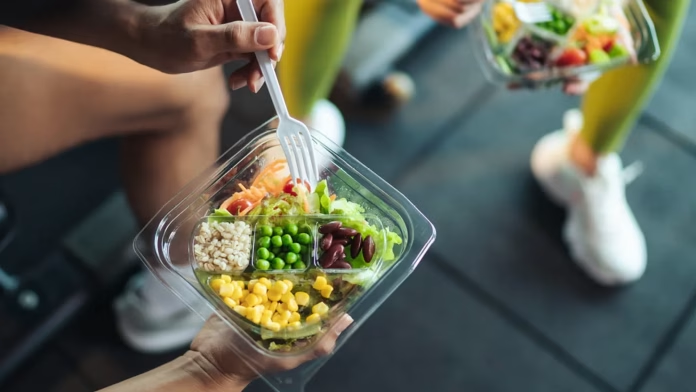As an athlete, proper nutrition is essential for achieving peak performance. Eating a balanced and nutrient-rich diet can help improve endurance, strength, speed, and overall athletic performance.
To help young athletes perform at their best, it’s important to provide them with the right nutrition before, during, and after games and practices. This means focusing on carbohydrates for energy, spreading out protein intake throughout the day, being cautious with fatty foods, and eating with food safety in mind.
Here are eight expert nutrition tips to help you take your athletic performance to the next level this World Athletes Day.
- Eat a Balanced Diet:
Eating a balanced diet that includes a variety of macronutrients and micronutrients is crucial for optimal athletic performance. Aim to consume a balanced ratio of carbohydrates, protein, and fat in your diet to provide your body with the energy and nutrients it needs to perform at its best.
Carbohydrates provide the body with energy and should make up the majority of your diet as an athlete. High-quality carbohydrate sources include whole grains, fruits, and vegetables. Protein is important for muscle growth and repair and should make up 15-25% of your total calorie intake. Good sources of protein include lean meats, poultry, fish, eggs, beans, and dairy products. Healthy fats are also important for energy, hormone production, and brain function. Sources of healthy fats include nuts, seeds, avocados, and fatty fish.
- Stay Hydrated:
Staying hydrated is essential for optimal athletic performance. Dehydration can lead to fatigue, cramps, and reduced performance. Aim to drink at least eight glasses of water per day, and more if you are exercising or sweating heavily. Electrolyte drinks can also be beneficial for replacing fluids and electrolytes lost during exercise.
- Time Your Meals:
Timing your meals around your workouts can help improve performance and aid in recovery. Eating a meal high in carbohydrates and protein before a workout can provide the energy and nutrients needed to perform at your best. Consuming a meal or snack containing carbohydrates and protein within 30 minutes after a workout can help with recovery and muscle repair.
- Incorporate Whole Foods:
Incorporating whole foods into your diet can provide your body with the nutrients it needs to perform at its best. Aim to consume a variety of fruits, vegetables, whole grains, lean protein, and healthy fats. Whole foods contain a variety of vitamins, minerals, and antioxidants that can help reduce inflammation, improve energy, and boost overall athletic performance.
- Supplement Wisely:
Supplements can help improve athletic performance, but it’s important to choose them wisely. Some supplements that may be beneficial for athletes include creatine, caffeine, beta-alanine, and nitric oxide boosters. However, it’s important to do your research and consult with a healthcare professional before taking any supplements, as some may have side effects or interact with medications.
- Fuel Up Before Exercise:
Eating a meal or snack before exercise can provide the energy needed to perform at your best. Aim to consume a meal high in carbohydrates and protein at least 2-3 hours before a workout. If you don’t have time for a full meal, a small snack containing carbohydrates and protein can provide a quick energy boost. Good options include a banana with peanut butter, Greek yogurt with fruit, or a protein shake with fruit.
- Refuel After Exercise:
Consuming a meal or snack containing carbohydrates and protein within 30 minutes after a workout can help with recovery and muscle repair. Good options include a protein shake with fruit, a peanut butter and jelly sandwich, or a grilled chicken breast with vegetables.
- Listen to Your Body:
Listening to your body is essential for optimizing athletic performance. Pay attention to how your body responds to different foods and adjust your diet accordingly. If you experience digestive issues or low energy, try adjusting your diet to include more whole foods or reduce your intake of processed foods. Additionally, rest and recovery are crucial for preventing injury and improving athletic performance, so make sure to give your body adequate time
to rest and recover between workouts.
Proper nutrition is essential for achieving peak athletic performance. Eating a balanced and nutrient-rich diet that includes a variety of macronutrients and micronutrients, staying hydrated, timing meals around workouts, incorporating whole foods, supplementing wisely, fueling up before exercise, refueling after exercise, and listening to your body are all important factors that can help take your athletic performance to the next level.
By following these expert nutrition tips, you can fuel your body with the energy and nutrients it needs to perform at its best and achieve your athletic goals.





